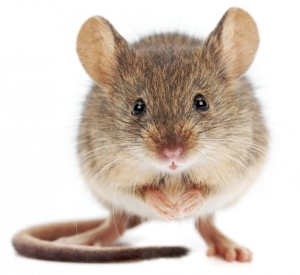 …so we are stood around the visual management board, considering a problem:
…so we are stood around the visual management board, considering a problem:
There’s been lots of talking, but an impasse has been reached.
- After a while a ‘quiet mouse’ of a person (almost imperceptibly) whispers something that is actually quite profound….but no one seems to have heard it;
- The ‘fog horn’ person doesn’t realise that he did in fact subconsciously overhear this whisper and blurts out similar words, thinking that he’s just had an original thought;
- “Wow”, everyone thinks, “that’s a great idea!”
- ‘Quiet mouse’ shifts back a little and thinks “that’s basically what I just said”…but is too polite to point this out;
- Then the ‘really awkward’ person says something which annoyingly (for ‘fog horn’), yet totally justifiably, questions the great idea;
- The ‘comedian’ says something funny that removes the tension in the air between ‘fog horn’ and ‘really awkward’;
- Which causes the ‘deep thought’ person to ponder ‘really awkward’s challenge and carefully suggest a logical revision to the idea;
- To which ‘fog horn’ adds his support, ‘comedian’ makes a joke out of this …and the group unite on fleshing out what experiment they are going to run to test out the idea and then conclude.
So, who did well in this discussion? Who did ‘best’? Who deserves praise? And, assuming that the subsequent experiment shows that the great idea has legs, which one deserves an award! Hang on…why are we trying to create a competition out of this?!
In reality, the good idea needed each and every one of ‘quiet mouse’, ‘fog horn’, ‘really awkward’, ‘comedian’ and ‘deep thought’ and the combined skills and personalities that they bring to the table. Remove any of these from the mix and we might not have got anywhere.
Those of you with even a mild eye for detail may protest that I have well and truly butchered Dr Meredith Belbin’s ‘Team Roles’ (I don’t think his list includes ‘quiet mouse’)…this was semi-intentional. Whilst Belbin’s research is hugely important (and very interesting), we shouldn’t really need the actual list of researched people characteristics to conclude that everyone’s different!
If you were to study a group of people working together over a period of time, you would see how dynamic (and necessary) the interplays are….but you know this!
However, a ‘command and control’ organisation looks to:
- single out people to praise for their ‘individual brilliance’; and
- rate and rank people against a supposedly desirable personality type.
An organisation is a highly complex living (as opposed to mechanistic) system. We should be celebrating the differences within our people. We should want to encourage each of them to develop their own innate skills AND the ability to collaborate.
A reminder of Deming’s wonderful quote about people:
“a [true] manager of people understands that people are different from each other. He [or she] tries to create for everybody interest and challenge and joy in work. He tries to optimise the family background, education, skills, hopes and abilities of everyone. This is not ranking of people. It is, instead, recognition of differences between people, and an attempt to put everybody in position for development.”
So what’s the point?
The success of an organisation will be best achieved through respecting each and every person and who they are….and helping them become who they can be. It will be damaged most by competition and pushing people to be who they are not.
This needs a rethink of the ‘command and control’ management system that creates the environment that many (most) of us work within.
End note: Does the title of this post mean anything to you? A 1980s song lyric? (…or perhaps it’s just my youth)
Depeche Mode
Drew me to the article
LikeLiked by 1 person